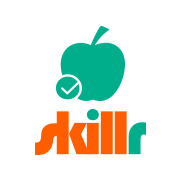Description

ACADASUITE

Study Island
Comprehensive Overview: ACADASUITE vs Study Island
ACADASUITE and Study Island are both educational technology solutions aimed at improving learning outcomes, but they serve different purposes and audiences. Here’s a comprehensive overview:
ACADASUITE
a) Primary Functions and Target Markets:
- Primary Functions: ACADASUITE is an educational management platform that integrates various administrative and academic functions. It offers tools for student information management, learning management, assessment creation, and reporting. Its features often include attendance tracking, grade book management, parental portals, and curriculum planning.
- Target Markets: ACADASUITE primarily targets educational institutions, such as K-12 schools, higher education establishments, and sometimes corporate training environments. The main users are administrators, educators, and students who benefit from streamlined processes and centralized data management.
b) Market Share and User Base:
- As an educational management platform, ACADASUITE competes with similar systems like PowerSchool and Infinite Campus. Its market share and user base depend on institutional adoption, which varies by region and educational level. It's a choice for institutions seeking an all-in-one solution to manage academic and administrative tasks.
c) Key Differentiating Factors:
- ACADASUITE's differentiation largely comes from its comprehensive suite of management tools that go beyond just classroom learning, encompassing a wide range of administrative functions.
- Its ability to offer customizable modules that can fit the specific needs of an institution can also be a significant differentiator.
- It is often praised for its user-friendly interface and integration capabilities with other educational tools.
Study Island
a) Primary Functions and Target Markets:
- Primary Functions: Study Island is an online learning platform focused on standards-based instruction, practice, and assessment. It provides educators with tools to track student progress through benchmark assessments and targeted learning modules. The platform is aligned with state standards and offers practice tests and quizzes to help students prepare for standardized exams.
- Target Markets: The primary target market for Study Island is K-12 education, with a particular focus on elementary and middle schools. The product is widely used by teachers and students to reinforce classroom learning and improve performance on standardized tests.
b) Market Share and User Base:
- Study Island is a well-known product within the K-12 e-learning sector, competing with other platforms like IXL Learning and Khan Academy. Its user base includes hundreds of thousands of students and educators who utilize the platform for supplementary instruction and test preparation.
- It holds a significant share, especially in states where its materials align closely with educational standards.
c) Key Differentiating Factors:
- One of Study Island’s main differentiators is its alignment with state-specific standards, providing educators with relevant and targeted materials for their curriculum.
- The platform is often recognized for its robust analytics, which allows teachers to monitor progress and personalize instruction.
- Study Island’s game-like environment, where students can earn rewards and certificates, helps in engaging students more effectively.
Comparative Analysis:
- Scope: ACADASUITE offers a broader array of administrative tools and is geared toward overall school management, whereas Study Island focuses specifically on student learning and assessment in a classroom setting.
- User Experience: Study Island provides a more interactive environment tailored towards student engagement, while ACADASUITE focuses on providing a comprehensive, integrated system for educational management.
- Integration and Customization: ACADASUITE is strong in integration with other school systems and offers more customization options according to institutional needs, while Study Island is more rigid in its structure due to its alignment with standards.
In summary, ACADASUITE and Study Island cater to different aspects of the educational ecosystem, with the former providing administrative and management tools and the latter emphasizing learning reinforcement and assessment. Their adoption will largely depend on the specific needs of the educational institution or district.
Contact Info

Year founded :
2015
+234 806 243 9476
Not Available
Nigeria
http://www.linkedin.com/company/acadasuite

Year founded :
2000
Not Available
Not Available
Not Available
http://www.linkedin.com/company/study-island
Feature Similarity Breakdown: ACADASUITE, Study Island
To provide a detailed feature similarity breakdown for ACADASUITE and Study Island, we need to consider their common capabilities, user interfaces, and distinguishing features. Here's an overview based on their typical offerings:
a) Core Features in Common
-
Standards-Aligned Content: Both platforms typically offer resources aligned with educational standards to ensure content relevance and applicability in school curricula.
-
Assessment Tools: They generally include tools for creating quizzes and tests to assess student understanding and progress.
-
Progress Tracking and Reporting: Users can typically track student progress over time and generate reports to identify areas of improvement.
-
Interactive Learning Modules: Both platforms likely provide interactive modules that engage students in the learning process and promote active participation.
-
Teacher and Student Accounts: These platforms usually support multiple user roles, enabling teachers to manage classes and assign tasks, while students can complete assignments and track their own progress.
b) Comparison of User Interfaces
The user interfaces (UI) for education platforms are designed to be intuitive and user-friendly, but there are nuances:
-
ACADASUITE: Often described as offering a streamlined and customizable interface that can be tailored to different educational levels. Its UI might provide easy navigation and customization options to meet specific classroom needs.
-
Study Island: Typically known for a straightforward, easy-to-navigate UI with gamified elements. This appeals particularly to younger students or those in K-12 education, making the learning experience more engaging through game-like features and rewards.
c) Unique Features
-
ACADASUITE:
- Customizable Curriculum: This platform might offer greater flexibility in creating custom learning paths and materials tailored to the specific needs of a classroom or institution.
- Integration Capabilities: Potential for robust integration with other educational tools and platforms, allowing for a seamless tech ecosystem in schools.
-
Study Island:
- Game-Based Rewards: Known for distinct gamification elements such as badges, tokens, or games that motivate students by rewarding them for completing assignments or achieving high scores.
- Practice Sessions: Often includes a large bank of practice questions specifically designed to prepare students for standardized tests, with immediate feedback to facilitate learning.
Overall, while both ACADASUITE and Study Island aim to enhance the educational experience through technology, they emphasize different aspects of teaching and learning, from customization and integration to gamification and test preparation. Users should consider these aspects when choosing the most suitable platform for their needs.
Features

Not Available

Not Available
Best Fit Use Cases: ACADASUITE, Study Island
ACADASUITE and Study Island are educational platforms designed to enhance learning and instructional processes, but they cater to different needs and use cases. Let's explore their best-fit use cases:
a) ACADASUITE Best Fit Use Cases
ACADASUITE is an all-encompassing educational management platform. Its strength lies in providing a comprehensive suite of tools for managing educational institutions. The ideal use cases include:
- Educational Institutions: Universities, colleges, and K-12 schools seeking to streamline administrative tasks, manage student data, curriculum planning, and handle academic records efficiently.
- Training Organizations: Businesses offering training programs that require robust systems for tracking progress, managing course materials, and assessing learning outcomes.
- Government Educational Departments: Entities needing to manage large-scale educational initiatives, track student performance across multiple schools, and generate analytics to inform policy decisions.
b) Study Island Preferred Scenarios
Study Island is a standards-based online learning platform primarily focused on practice and assessment. It's best utilized in scenarios like:
- K-12 Schools: Schools looking to reinforce standards-based learning, preparing students for standardized tests, and offering effective tools for classroom practice and assessment.
- Teachers and Educators: Educators needing a supplementary resource for customized assignments, progress tracking, and differentiated instruction tailored to individual student needs.
- District-wide Implementations: School districts aiming to implement a uniform assessment and practice tool that ensures consistent learning outcomes across multiple schools.
d) Catering to Different Industry Verticals or Company Sizes
- Industry Verticals:
- Education Technology (EdTech): Both platforms are part of the EdTech sector, serving schools, educational institutions, and training organizations.
- Government and Public Education: ACADASUITE could be more suited for large-scale government projects due to its comprehensive management capabilities.
- Company Sizes:
- Large and Medium-sized Institutions: ACADASUITE is ideal for larger educational institutions with complex needs involving multiple departments and campuses.
- Small to Medium Schools/Districts: Study Island's focused approach to practice and assessment makes it suitable for smaller schools and districts looking for cost-effective, targeted solutions.
In summary, ACADASUITE is best suited for institutions looking for a broad range of management and administrative tools, whereas Study Island excels in scenarios where focus on standards-based practice and assessment for K-12 education is paramount. These products complement various educational settings by catering to the specific needs of different teaching and administrative objectives.
Pricing

Pricing Not Available

Pricing Not Available
Metrics History
Metrics History
Comparing teamSize across companies
Conclusion & Final Verdict: ACADASUITE vs Study Island
To provide a meaningful conclusion and final verdict for ACADASUITE and Study Island, let's consider various educational tools' aspects such as features, user experience, pricing, customization, and support.
Conclusion and Final Verdict
a) Which product offers the best overall value?
ACADASUITE often stands out as offering a robust suite of customized learning tools with flexible configurations suited for varying educational needs. Its integration options with other educational technologies can make it more scalable in certain environments.
Study Island, on the other hand, is particularly known for its standards-based assessments that align well with state-specific curriculums, making it highly valuable for institutions focused on standardized test results and curriculum adherence.
Ultimately, the best overall value will depend on the specific needs and priorities of the user. If customization and integration are key, ACADASUITE may offer better value. For those prioritizing standardized test preparation, Study Island may be more beneficial.
b) Pros and Cons of Choosing Each Product
ACADASUITE:
-
Pros:
- Customizable features and modules.
- Strong integration capabilities with other educational platforms.
- Adaptability for various educational levels and environments.
-
Cons:
- May require more time to configure and customize.
- Potentially higher upfront training and setup costs.
Study Island:
-
Pros:
- Alignment with state-specific standards.
- Focused on improving standardized test scores.
- User-friendly interface with less setup required.
-
Cons:
- Less customizable compared to ACADASUITE.
- Can be too focused on testing, limiting broader educational explorations.
c) Specific Recommendations for Users
For users trying to decide between ACADASUITE and Study Island:
-
Define Your Primary Goals: If your main objective is to enhance student performance on standardized tests, Study Island's ready-to-use, standards-aligned resources will likely suit your needs better. Conversely, if you seek a platform offering a broader range of customizable features and integration options, ACADASUITE would be more appropriate.
-
Consider Setup and Learning Curves: Evaluate the resources you have available for training and setup. Study Island is generally easier to implement, whereas ACADASUITE may require a more significant initial investment in time and training.
-
Assess Integration Needs: If your educational environment relies on integrating various technical tools and platforms, consider ACADASUITE for its flexibility in this area.
-
Budget Constraints: Study Island might present a cost-effective solution for straightforward test preparation needs, whereas ACADASUITE might involve higher initial costs but could offer a better ROI for expansive and diverse educational applications.
By thoroughly assessing these factors, institutions and educators can make a well-informed decision that aligns with their educational strategies and logistical realities.
Add to compare
Add similar companies



